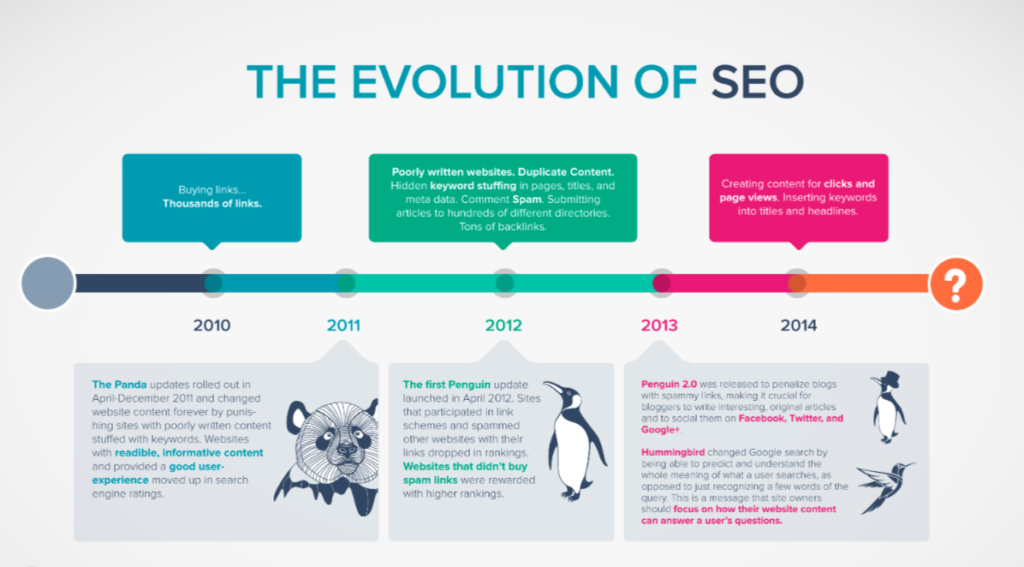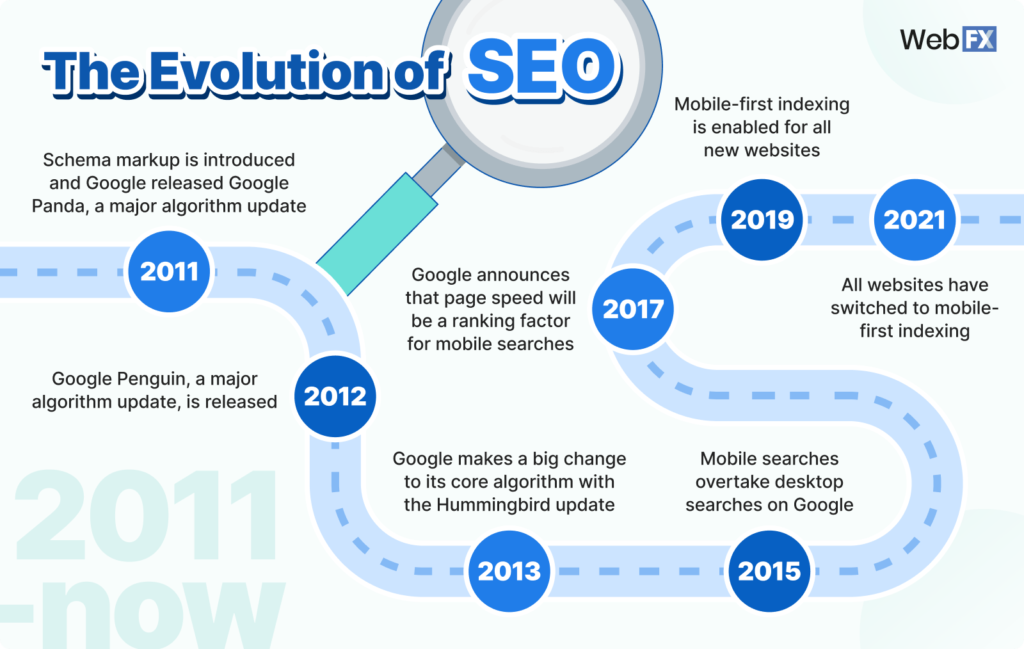The Evolution of Search Engine Optimization Experts
Search Engine Optimization (SEO) has undergone a remarkable transformation since its inception. Once a field dominated by keyword stuffing and backlink spamming, SEO has evolved into a sophisticated discipline that plays a crucial role in digital marketing. Today, SEO experts are not just technical wizards; they are strategists, content creators, and data analysts who work at the intersection of user experience and search engine algorithms. This evolution reflects the broader changes in how search engines like Google evaluate and rank websites.

The Early Days: Keywords and Links
In the early days of SEO, the focus was primarily on keywords and backlinks. SEO experts were essentially “hackers” who exploited the weaknesses of search engine algorithms to push their websites to the top of search results. The process was relatively simple: identify popular keywords, stuff them into web pages, and build as many backlinks as possible, regardless of the quality of the linking sites.
During this era, SEO specialists were measured by how well they could manipulate search engines. Techniques like keyword stuffing, hidden text, and link farms were common practices. The goal was to trick search engines into believing that a site was more relevant and authoritative than it actually was. Success in SEO was more about gaming the system than providing value to users.
Read About : http://The Evolution of SEO: A History of Search Engine Optimization
The Shift to Quality: Panda and Penguin Updates
The game changed significantly in the early 2010s with Google’s Panda (2011) and Penguin (2012) algorithm updates. These updates penalized low-quality content and manipulative link-building practices. Suddenly, the old tricks stopped working, and many websites saw their rankings plummet overnight.
This was a wake-up call for SEO experts. The focus shifted from quantity to quality. It was no longer enough to flood a website with keywords and backlinks. Content needed to be relevant, well-written, and provide genuine value to users. SEO experts had to earn links from reputable sources. SEO experts had to adapt quickly, learning to balance technical optimization with content strategy.
Content is King: The Rise of Content Strategy

As search engines continued to refine their algorithms, content emerged as the king of SEO. The Hummingbird update in 2013 cemented this shift by emphasizing semantic search and user intent. Google and other search engines began to prioritize content that matched the intent behind a user’s query, rather than just the exact keywords they used.
SEO experts became content strategists. They expanded their role to include researching user intent, understanding target audiences, and creating content that was not only optimized for search engines but also engaging and useful for users. This shift required a deep understanding of both the technical aspects of SEO and the principles of effective content marketing.
The User Experience Factor: Mobile and Core Web Vitals
In recent years, user experience (UX) has become a critical factor in SEO. Google’s mobile-first indexing and the introduction of Core Web Vitals in 2021 highlight this shift. SEO experts now need to ensure that websites are not only easy to find but also easy to use. This includes optimizing for mobile devices, improving page load times, and enhancing the overall usability of a site.
SEO has become increasingly holistic. It’s no longer enough to focus on isolated elements like keywords or backlinks. SEO experts need to consider the entire user journey, from the moment someone types a query into a search engine to the experience they have on the website. This requires a deep understanding of UX design, mobile optimization, and the technical aspects of website performance.
The Role of Data and AI in Modern SEO
Today, data and artificial intelligence (AI) are at the forefront of SEO. Tools powered by AI, like Google’s Rank Brain, use machine learning to better understand user queries and rank content accordingly. SEO experts now rely heavily on data analysis to guide their strategies, using tools like Google Analytics, SEMrush, and Ahrefs to track performance, identify trends, and make informed decisions.
The modern SEO expert is a data-driven marketer who understands how to interpret analytics, adjust strategies based on performance data, and anticipate the next moves of search engine algorithms. The ability to leverage AI and machine learning is becoming increasingly important, as these technologies continue to shape the future of search.
The Future of SEO Expertise

The evolution of SEO is far from over. As search engines become more sophisticated, the role of the SEO expert will continue to evolve. Future SEO specialists will need to be even more adaptable, staying ahead of technological advancements and algorithm updates. They will also need to be more collaborative, working closely with content creators, web developers, and UX designers to create comprehensive digital marketing strategies.
One thing is certain: the days of keyword stuffing and backlink spamming are long gone. Today’s SEO experts are strategic thinkers who play a vital role in the success of online businesses. Their evolution from technical manipulators to strategic content creators reflects the broader shift in SEO towards quality, relevance, and user experience.
In conclusion, the journey of SEO experts from keyword-focused tacticians to strategic content and UX leaders mirrors the ongoing development of search engine technology. As the digital landscape continues to change, SEO experts will remain at the forefront, guiding businesses through the complexities of search engine optimization with a focus on providing value to users and creating sustainable, long-term success.

